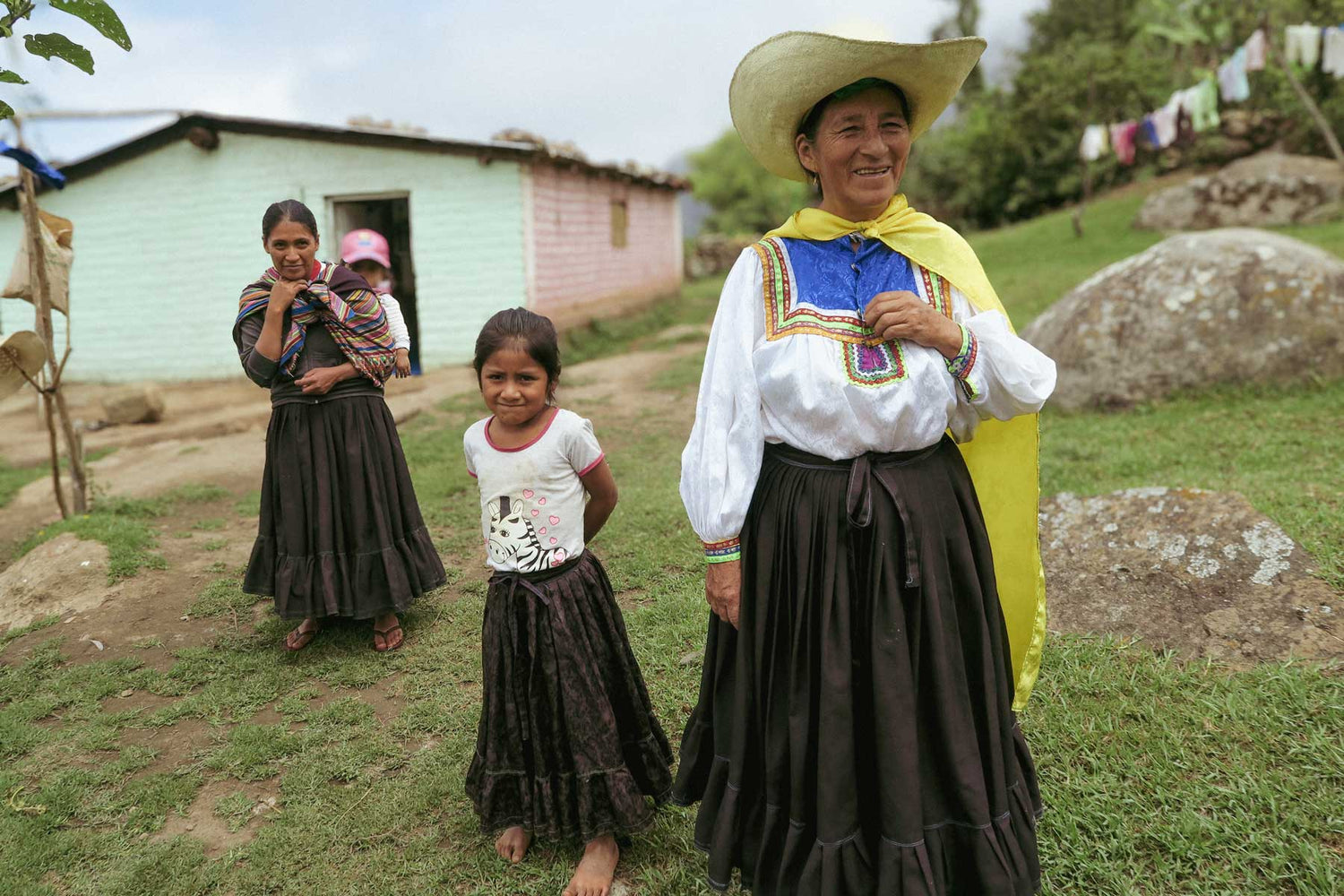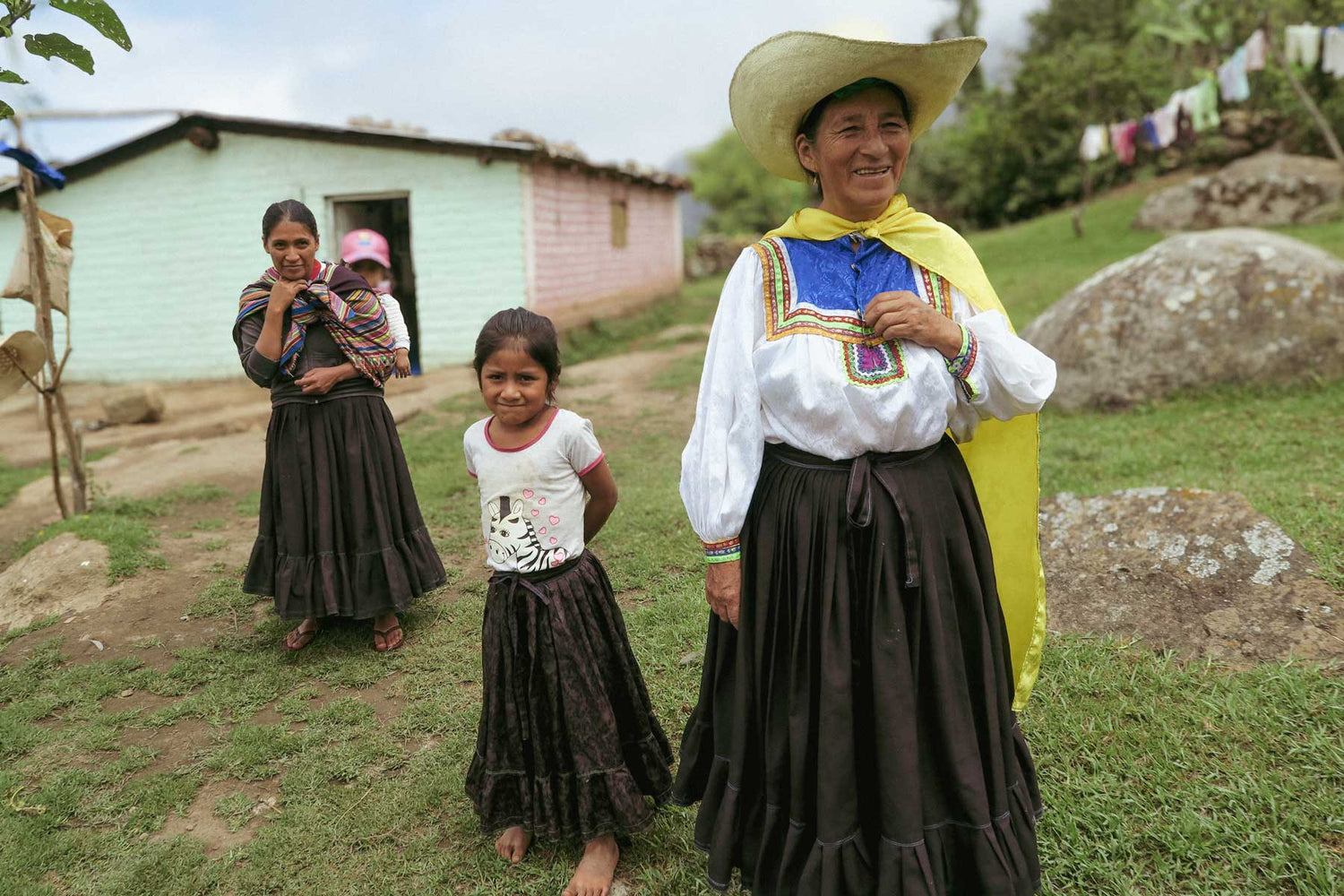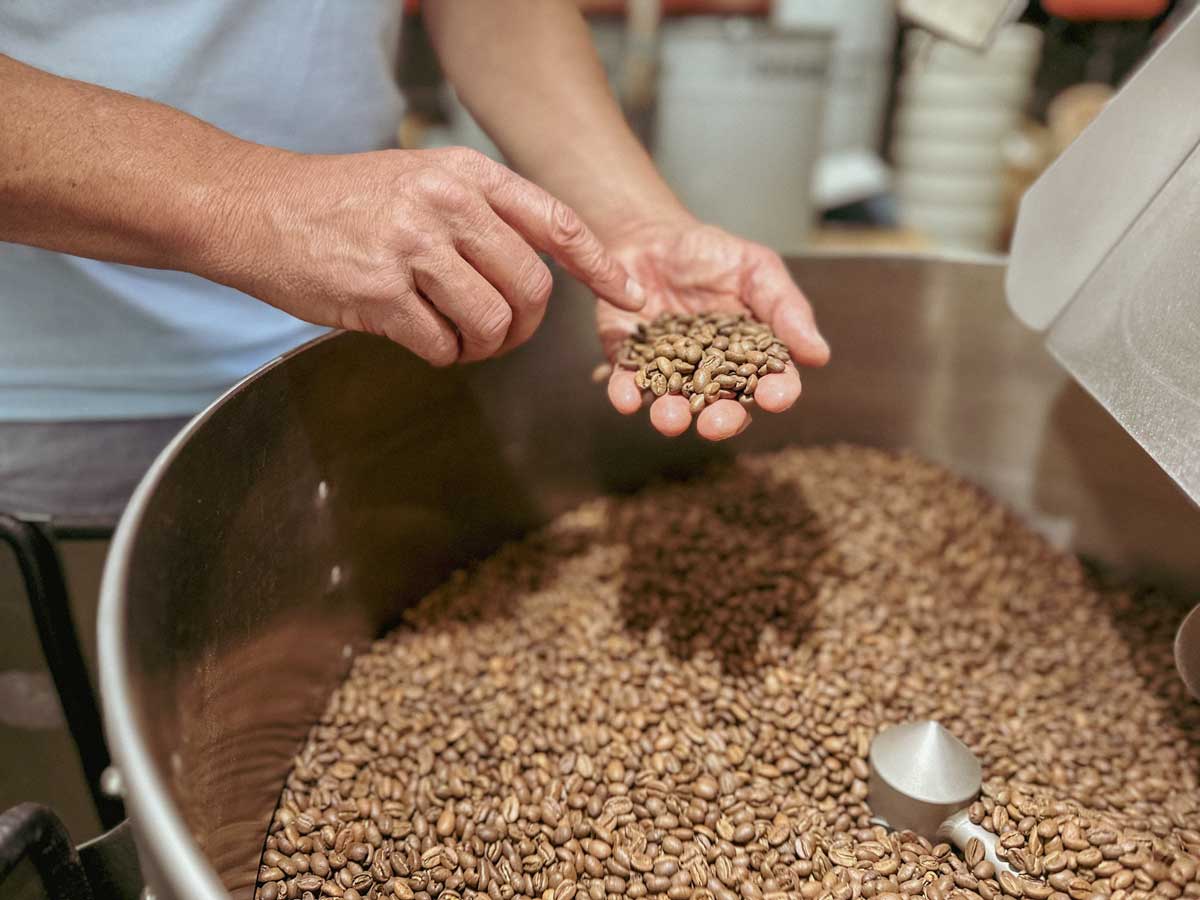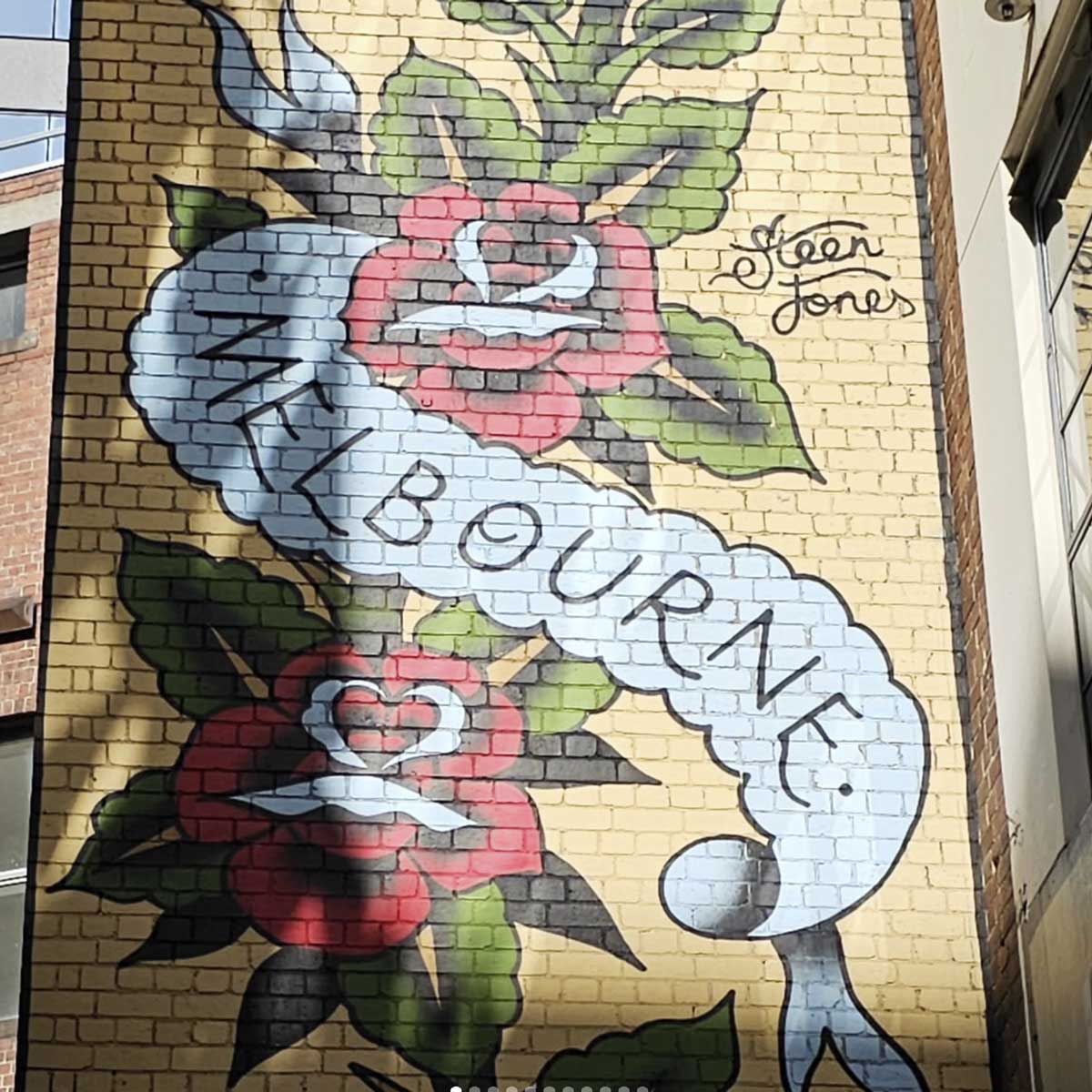It Takes a Whole Supply Chain to Brew Change: The Cafe Femenino Story
March is B Corp Month—and it also follows close on the heels of International Women’s Day. Two reminders that business can (and should) do more than just turn a profit. It should make a difference. We’re reflecting on what that looks like for us at 23 Degrees
Our thing? Building a more equitable coffee supply chain—one that values fairness, transparency, and the people who make coffee possible.
Have you ever thought about how many hands your coffee passes through before it reaches your café or is delivered to your home? The farms, the co-ops, the traders, the roasters—it’s a journey that spans continents. And it doesn’t just happen on its own.
And let’s be honest—coffee supply chains can be messy. They're long and complex. And where there’s complexity, there’s often a lack of transparency. And where there’s a lack of transparency, exploitation creeps in.
At 23 Degrees, we’ve made it part of our mission to work with supply chains that operate with integrity. That’s why we seek out partnerships we can trust—ones where we know where our coffee comes from, how it’s traded, and who benefits. The Café Femenino supply chain is one of the most transparent, values-aligned ones we’ve ever worked with. And the people and organisations behind it are committed, ethical, and genuinely changing lives—especially for women at origin.
So we thought, what better time than now to shine a light on a supply chain we’re incredibly proud to be part of: the Café Femenino Program.
The Beginning: A Bold Idea Born in the Highlands of Peru
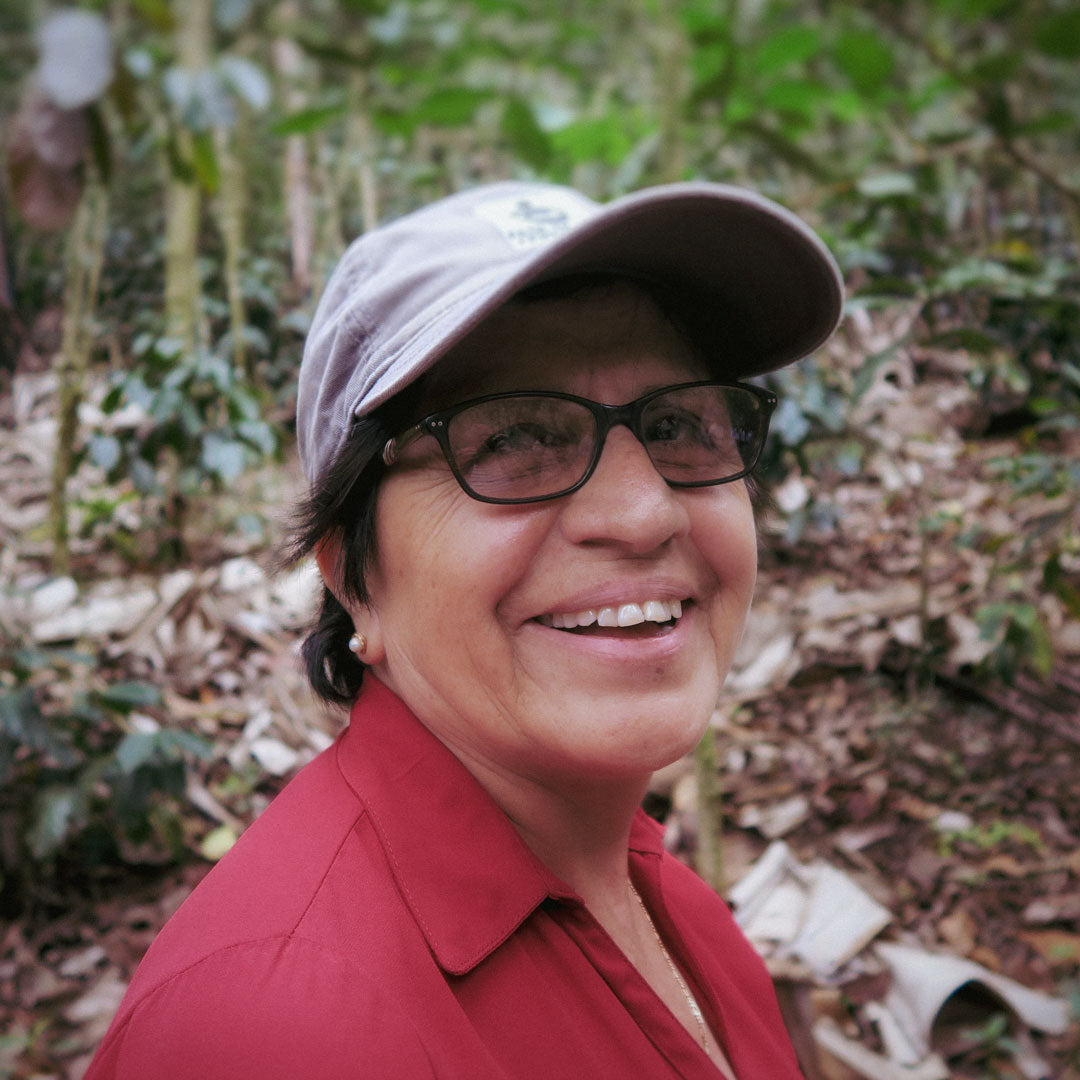
Back in the early 2000s, in the highlands of northern Peru, a group of women farmers were doing what they’d always done—working hard on the family coffee farms. But here’s the thing: they had no voice in how the money was used. Even though they were doing a huge amount of the labour, the payment went to the men. The women weren’t being paid directly, and they weren’t part of the conversation.
That started to change thanks to a powerhouse woman named Isabel Uriarte.
Isabel is a sociologist by training and a champion for small-scale farmers. She co-founded CECANOR and later PROASSA, the exporting organisation we now work with in Peru. More importantly, she listened. When women started saying they wanted to sell their coffee separately, Isabel didn’t dismiss it. She helped make it happen.
That idea – that women could produce and sell their own coffee – was groundbreaking. In 2004, 464 women took a leap and separated their coffee production from the men’s. They branded it Café Femenino. And they asked a simple question: would anyone be willing to buy it?
That question landed on the desk of Gay Smith and her husband Garth, who ran Organic Products Trading Company (OPTCO) in the U.S. They'd been working with producers in Peru for years, and when Isabel called to say, "the women want to do this differently," Gay stepped up.
Actually, she jumped in with both feet.
She knew what it felt like to be told you don’t matter. She’d been through her own struggles—abuse, financial hardship, starting over with three kids and no safety net. And she knew the power of economic independence. So when the women in Peru said, "We want to sell our coffee directly," Gay didn’t hesitate.
Café Femenino became the first coffee program in the world to give women farmers ownership of their product from start to finish. It wasn’t just a marketing story. The money went to the women. The decision-making power went to the women. The leadership? Women.
That first harvest changed everything. Not just for the women in Peru, but for women in coffee-growing regions around the world. Because it proved that when women are paid directly for their work, families eat better. Kids stay in school. Communities get stronger. And women—well, they rise.
Of course, it didn’t stop at coffee sales. Gay went on to start the Café Femenino Foundation, a nonprofit that funds grassroots projects designed and led by the women themselves. Things like clean water systems, health clinics, leadership training, and emergency funds.
And Isabel? She kept going too. She continues to be a driving force behind the program, working with cooperatives, mentoring farmers, and helping women step into roles that once felt completely out of reach.
That’s the story behind Café Femenino. It’s bold. It’s grassroots. And it’s ongoing.
Bringing the Vision to Life—One Trusted Partner at a Time
Isabel, Gay, and Garth laid the foundation for Café Femenino. But as the saying goes, it takes a village to raise a child. In the coffee world? It takes a whole supply chain to brew meaningful change.
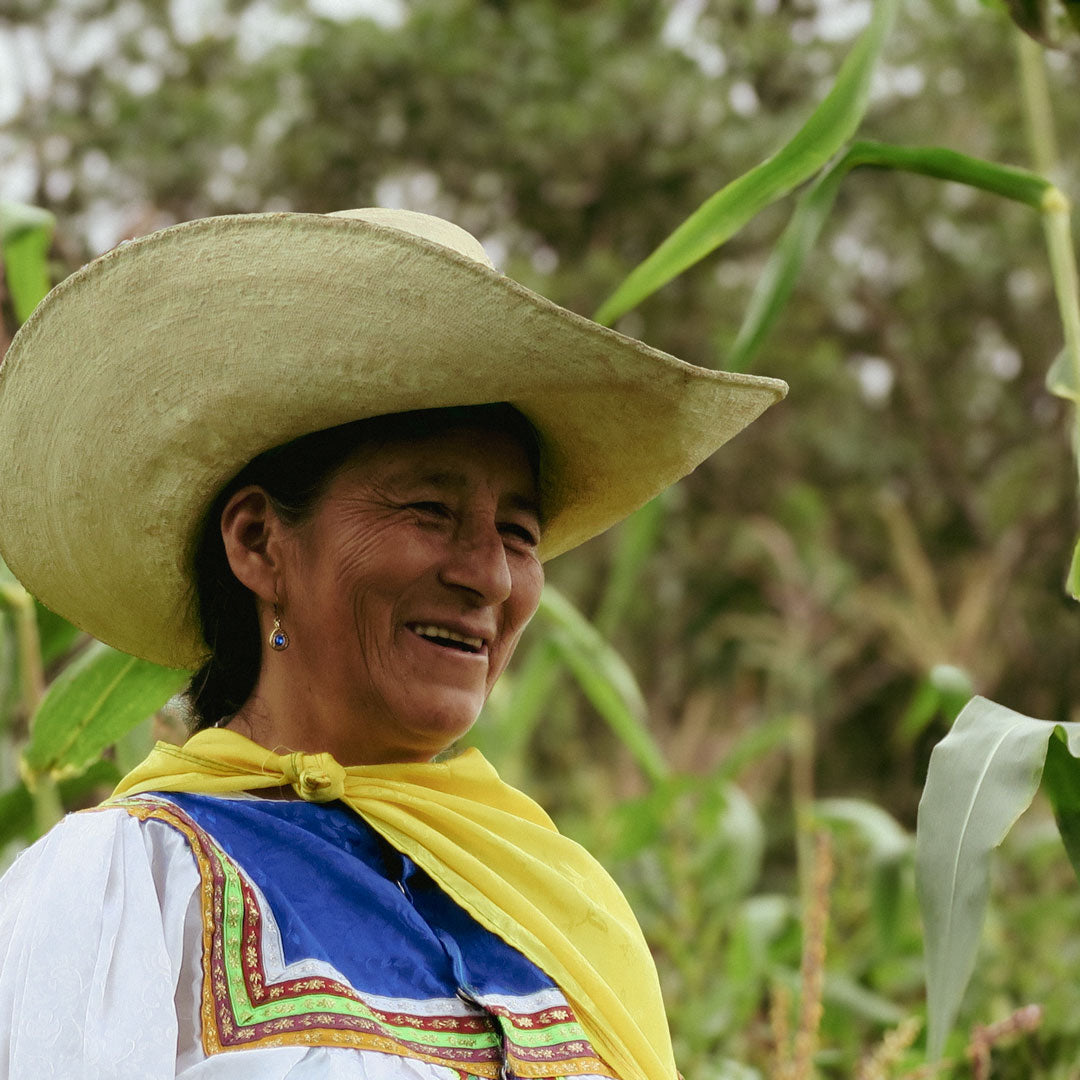
Women Coffee Growers
The Farmer: Growing the Coffee. Owning the Work.
Every Café Femenino bean starts its journey on the steep mountain slopes of northern Peru. This is where women like Paula Chávez Gómez tend to their coffee trees, often on land they’ve inherited or fought to claim in their own name.
Paula leads the Asociación de Mujeres Productoras de Café y Quinoa (Association of Women Producers of Coffee and Quinoa)—a local women’s association formed to give female farmers a collective voice.
These women do the hard work—growing, harvesting, drying their coffee. But thanks to Café Femenino, they also get something many women in agriculture never do: direct payment, land ownership, and a seat at the decision-making table.
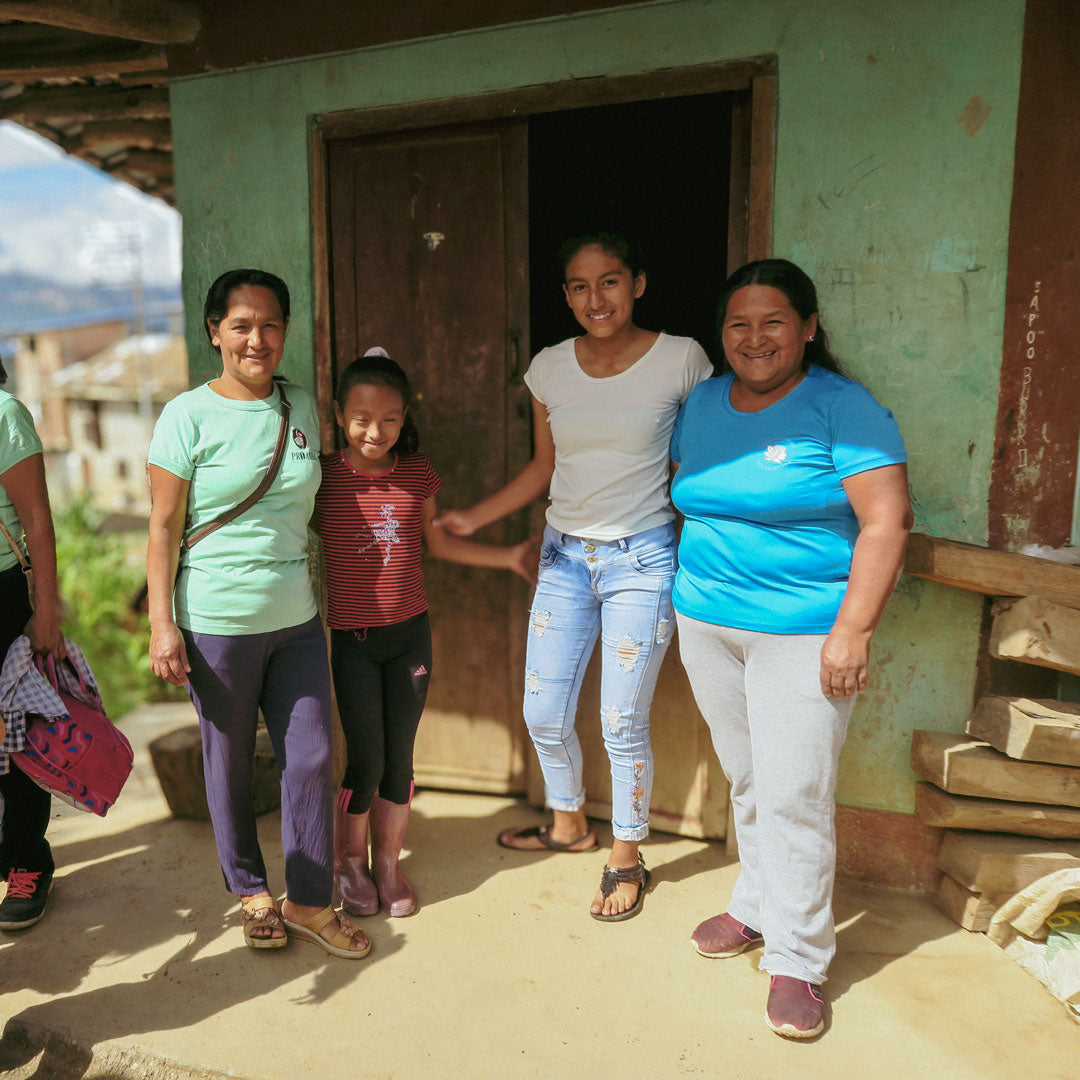
Association of Women Producers of Coffee and Quinoa
The women's association: Collaboration. Leadership. Opportunity.
The Association of Women Producers of Coffee and Quinoa 'AMPROCAFEQ' is a grassroots association that brings together these women producers. It serves as a collective platform where they can collaborate, share knowledge, and access resources related to both coffee and quinoa production. By diversifying their crops and working together, members build more stable and resilient livelihoods.
Café Femenino works directly with women’s organisations like AMPROCAFEQ across different regions in Peru. These groups are formally organised and recognised within the Café Femenino Program, and each plays a vital role in implementing the program's values—ensuring transparency, direct payments to women, and community-driven leadership. Through these partnerships, Café Femenino supports women not just as farmers, but as leaders and changemakers.
Today, AMPROCAFEQ is one of several women-led organisations in Peru that form part of the Café Femenino Program. Together, they represent a growing movement of female producers across different communities who are leading change through collaboration and collective action of female producers across different communities who are leading change through collaboration and collective action.
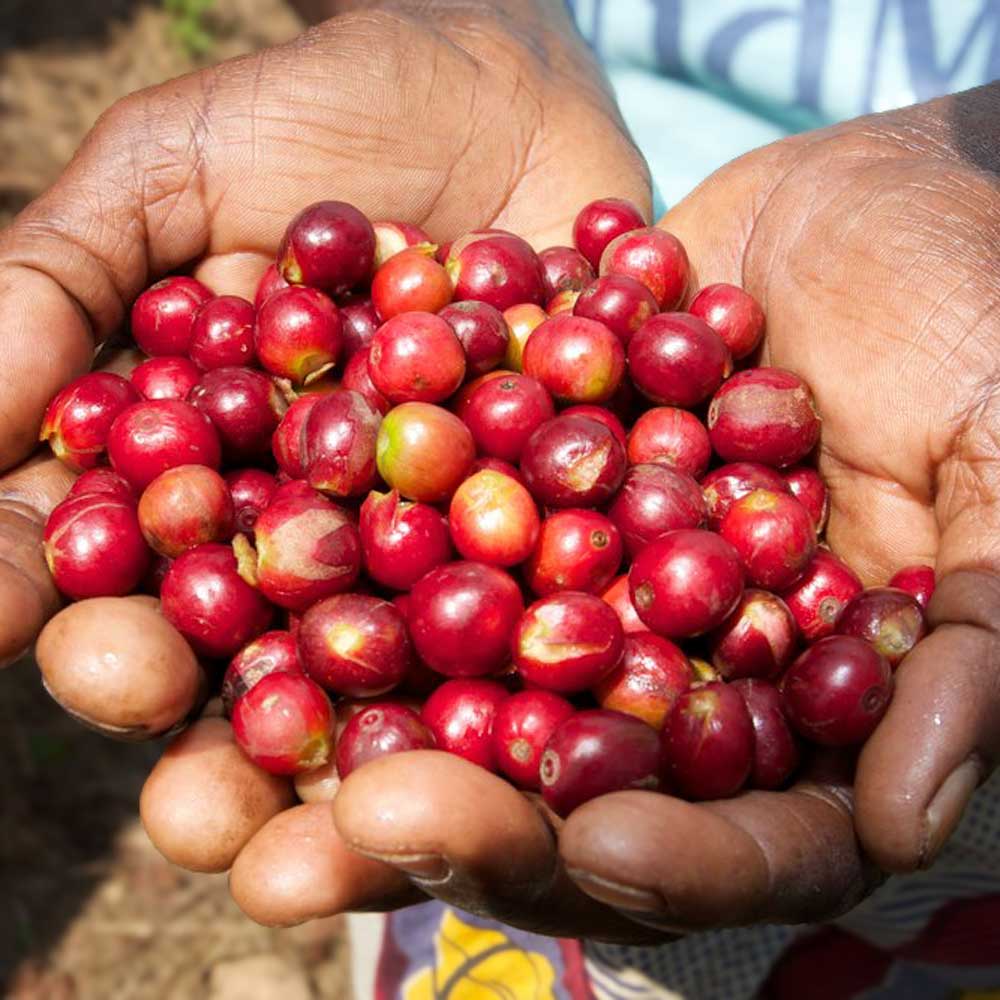
CECANOR
The Cooperative backbone: Infrastructure. Training. Representation.
The women of Association of Women Producers of Coffee and Quinoa are part of CECANOR (Central de Cafetaleros del Nororiente), a regional cooperative that helps farmers organise and access international markets.
If the association is the community, CECANOR is the scaffolding. It provides training, infrastructure, and support—things like fermentation tanks, drying patios, and organic certification. It also ensures that women’s voices are heard in the governance of the coop itself. No tokenism. Real leadership.
Thanks to CECANOR, the women aren’t isolated farmers—they’re part of a larger, professional supply chain that treats them as equals.
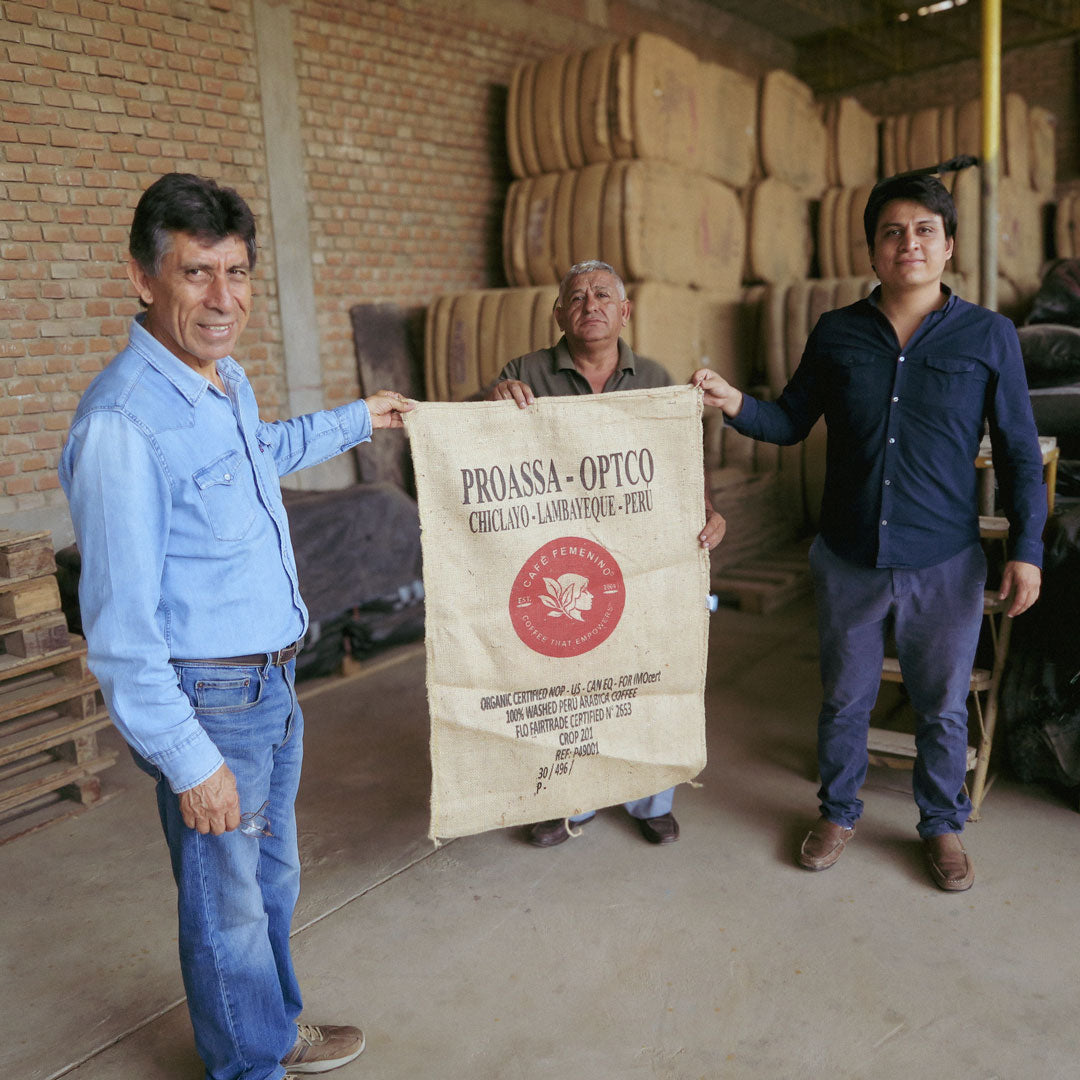
PROASSA
The exporter: Quality Control. Ethical Export.
After the coffee is sorted and ready to go, it travels to Proassa—the exporter in this value chain. This is the part of the process most people don’t think about.
So what does an exporter actually do?
Proassa handles the milling, grading, and final quality checks before the coffee leaves Peru. They also deal with logistics—paperwork, transport, customs clearance. Basically, they make sure the coffee is packed properly, shipped on time, and documented transparently so that traceability isn’t lost.
Proassa works closely with CECANOR to make sure everything from the village drying patios to the shipping container is traceable and fair. It’s not just about moving coffee. It’s about protecting the integrity of the women’s work all the way through to the roaster.
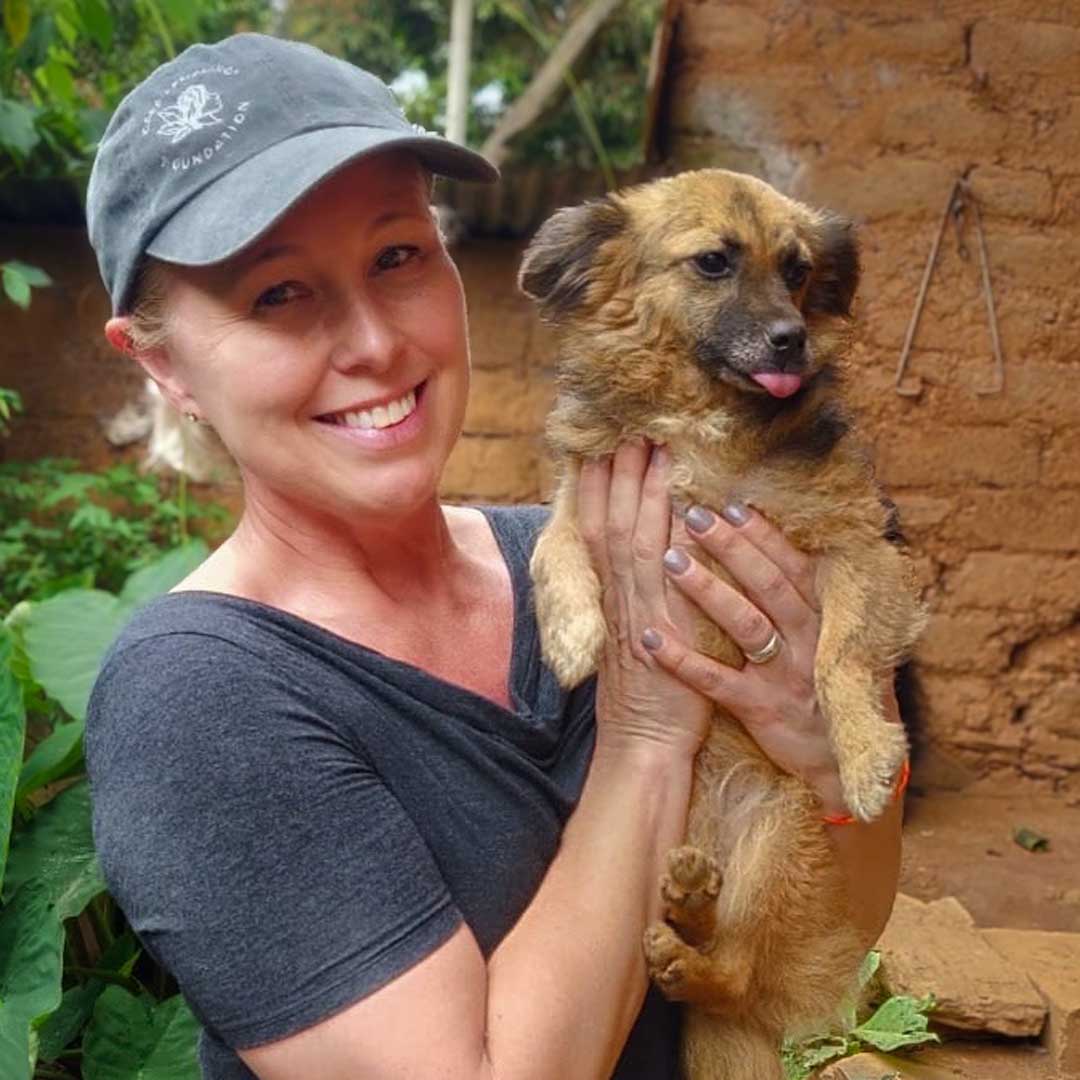
OPTCO
Marketer and Program manager: Standards. Storytelling. Stewardship.
OPTCO, based in the U.S., was instrumental in co-founding Café Femenino and continues to play a pivotal role in its success. They are not just marketers—they are the program managers and caretakers of the Café Femenino model.
OPTCO is responsible for setting and upholding the program’s standards across all participating countries. That includes ensuring traceability, direct payments to women producers, Fairtrade premiums, organic certification, and active participation of women in leadership. They also help shape the framework through which roasters and importers like us at 23 Degrees—and others like H.A. Bennett & Sons—engage with the program.
Through outreach, education, and partnership building, OPTCO connects like-minded buyers to Café Femenino and helps tell the story of why this supply chain matters. They’re a vital link between origin and market, making sure the mission doesn’t get diluted along the way.
Since 2006, Connie Kolosvary has been at the helm of the Café Femenino Program within OPTCO. As Director, Connie dedicates herself to expanding the program's reach, fostering relationships with women coffee producers across multiple countries, and ensuring that Café Femenino's core values remain steadfast. Her unwavering commitment has solidified the program's reputation as a transformative force in the coffee industry.
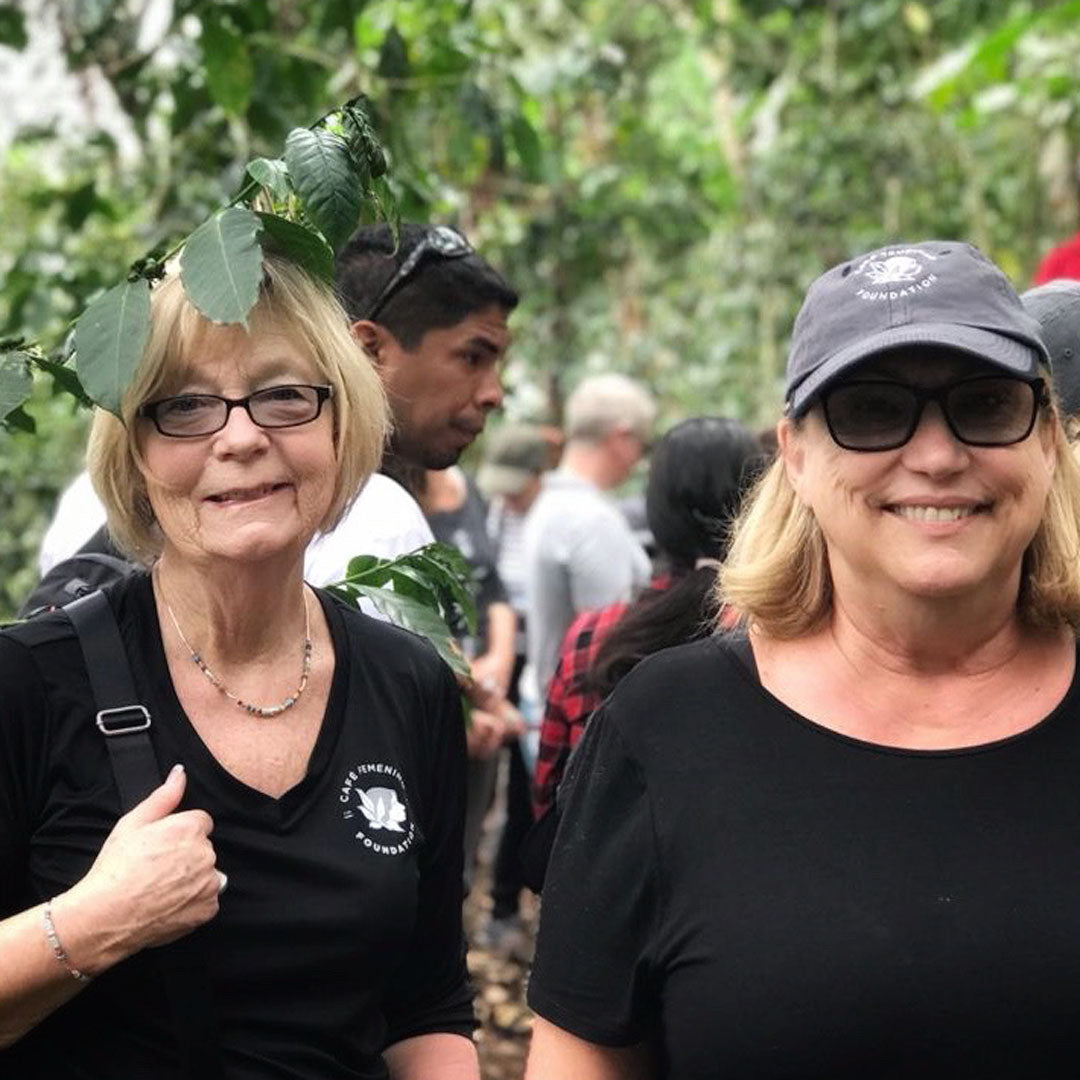
The Cafe Femenino Foundation
The Non-Profit Arm: Fundraising. Local Projects.
Beyond coffee sales, there’s the Café Femenino Foundation—and this is where the impact really deepens.
Each year, women from Café Femenino cooperatives apply for funding to support community-led projects. These aren’t top-down development efforts—they’re practical, targeted initiatives shaped by the people who live and work in these communities.
At 23 Degrees, we’ve proudly supported several of these projects, including:
- A water reservoir to improve access during dry seasons
- Emergency medical funds for families facing urgent health needs
- Seedlings to replant coffee trees after adverse weather events
- A chiffla machine to help women diversify their income beyond coffee
The Foundation is led by Marilyn, who spends several months each year in Peru, visiting communities and connecting with the women on the ground. The rest of the year, she’s tirelessly organising fundraising events, connecting with sponsors, and making sure these projects have the backing they need to succeed.
Honestly, without incredible humans like Marilyn and her team, we wouldn’t be able to get involved in such meaningful ways. They’re the link between roasters like us and the real needs at origin—and they make sure the support gets to the right place.
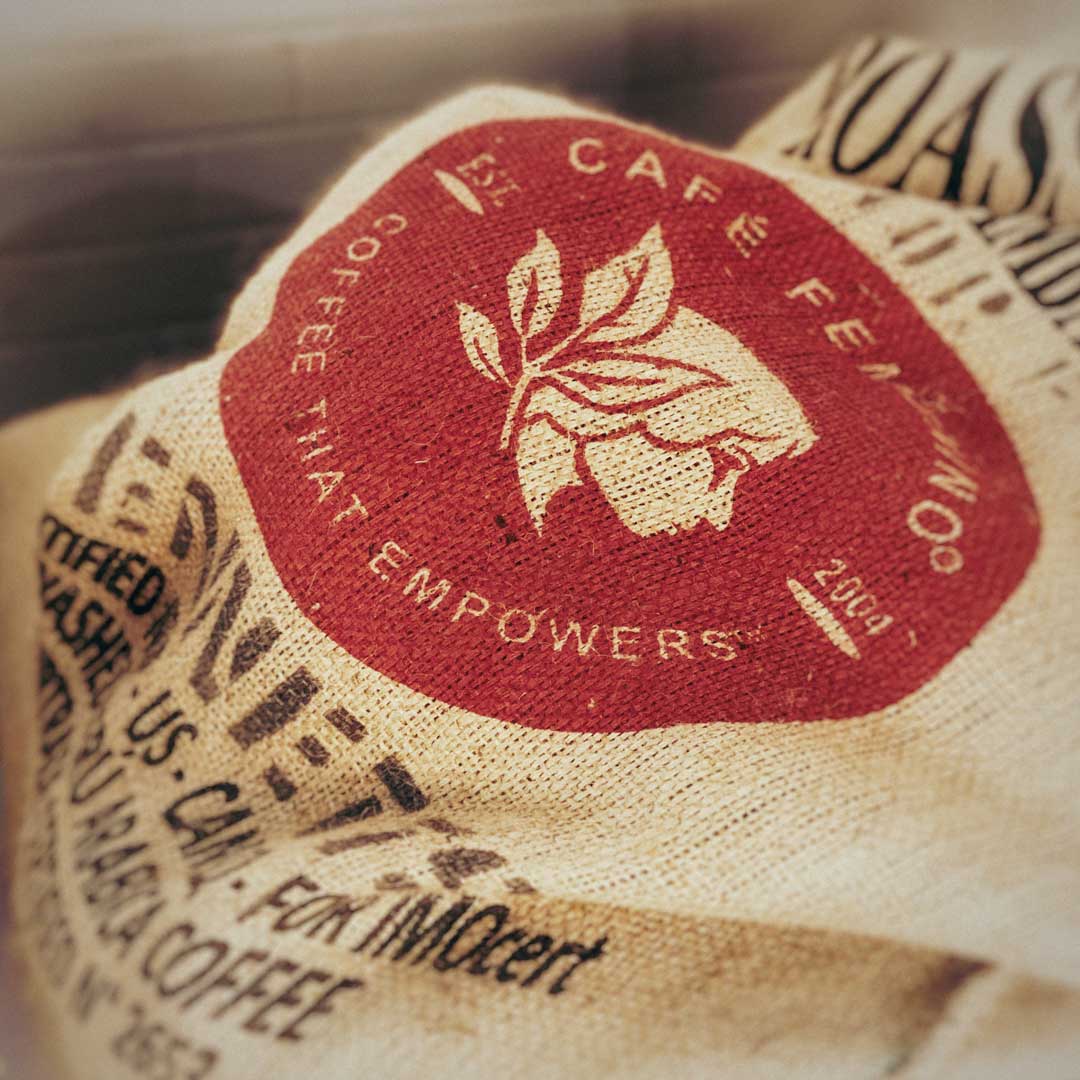
H.A.Bennett & Sons
The Importer Down Under: From Port to Roaster.
Once the coffee is on our side of the globe, H.A. Bennett & Sons steps in. They’re a long-standing, family-owned specialty coffee importer with a legacy that spans over a century. Founded in 1918, the business has been passed down through generations—earning a reputation for quality, reliability, and deep-rooted relationships in the coffee trade.
They help get Café Femenino coffee from port to roaster—reliably, efficiently, and with the care it deserves. As a trusted Australian importer, they’ve played a key role in bringing Café Femenino to Aussie cafés and roasteries. And we’re proud to be part of that network.
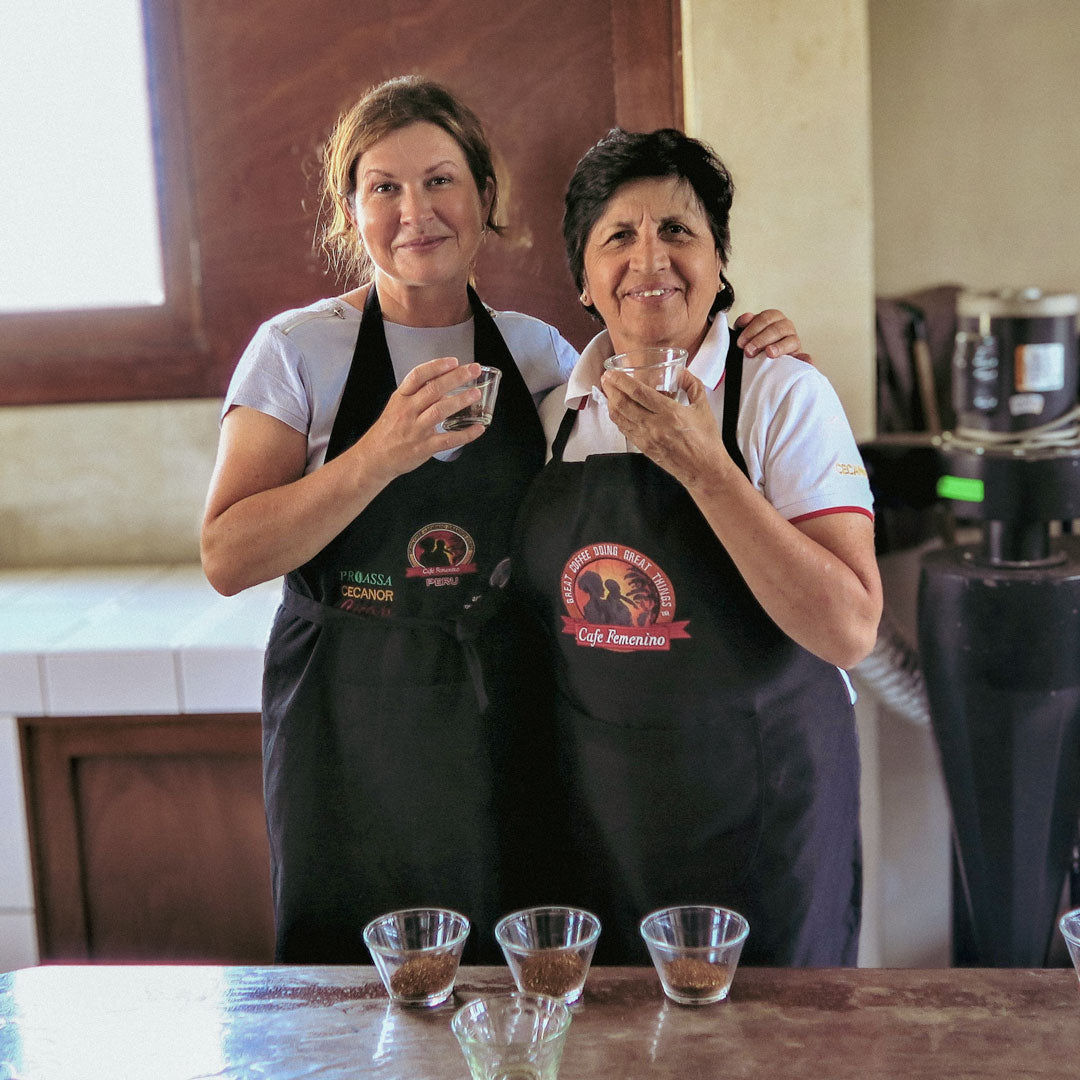
23 Degrees Coffee Roasters (That's Us)
Your Local Roaster: Passion. Purpose. Tasty Beans.
At 23 Degrees, we roast Café Femenino coffee right here in Melbourne. For us, this isn’t just about sourcing good beans. It’s about knowing the story and the people behind the product. It’s about roasting coffee with transparency and purpose.
Tina, the founder of 23 Degrees, is the relentless force behind our commitment to ethical sourcing and our long-standing partnership with Café Femenino. She’s visited the farms. Sat at the tables. Shared meals and conversations with the women who grow these beans. Her belief in creating a fairer supply chain isn’t theoretical—it’s lived, experienced, and deeply felt.
Every time we roast a batch, we know it supports something bigger. It’s a reminder that doing business differently is possible—and powerful.
Want to Be Part of This Supply Chain?
Whether you're a café, a business, an educator or someone curious about how business can be a force for good—there’s room for you here.
Get in touch. Let's Brew something meaningful together.
-
Email
enquiries@23degrees.com.au -
Follow us
Thanks for reading and being part of our journey.
Warmly,
Tina
Founder, 23 Degrees Coffee Roasters



